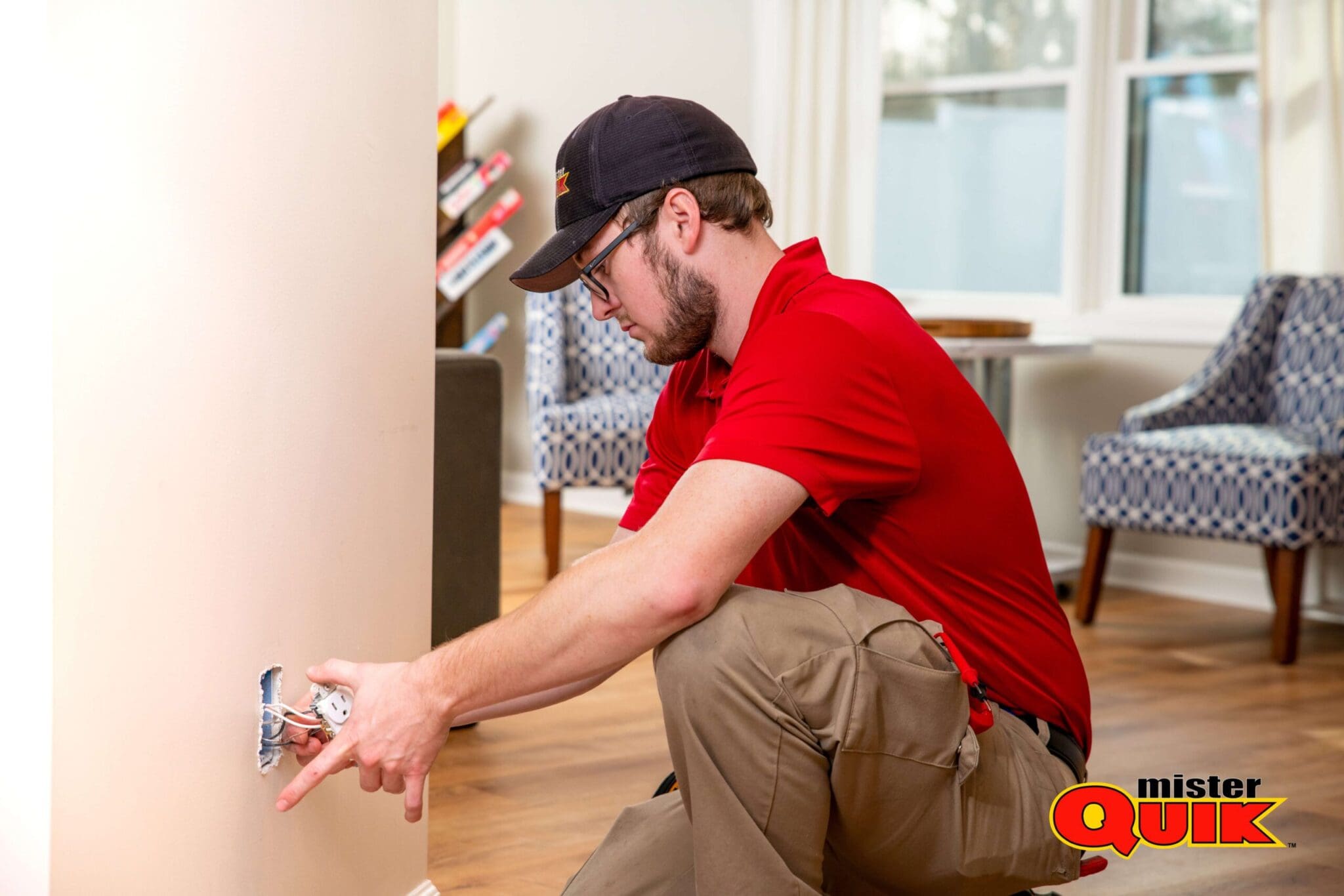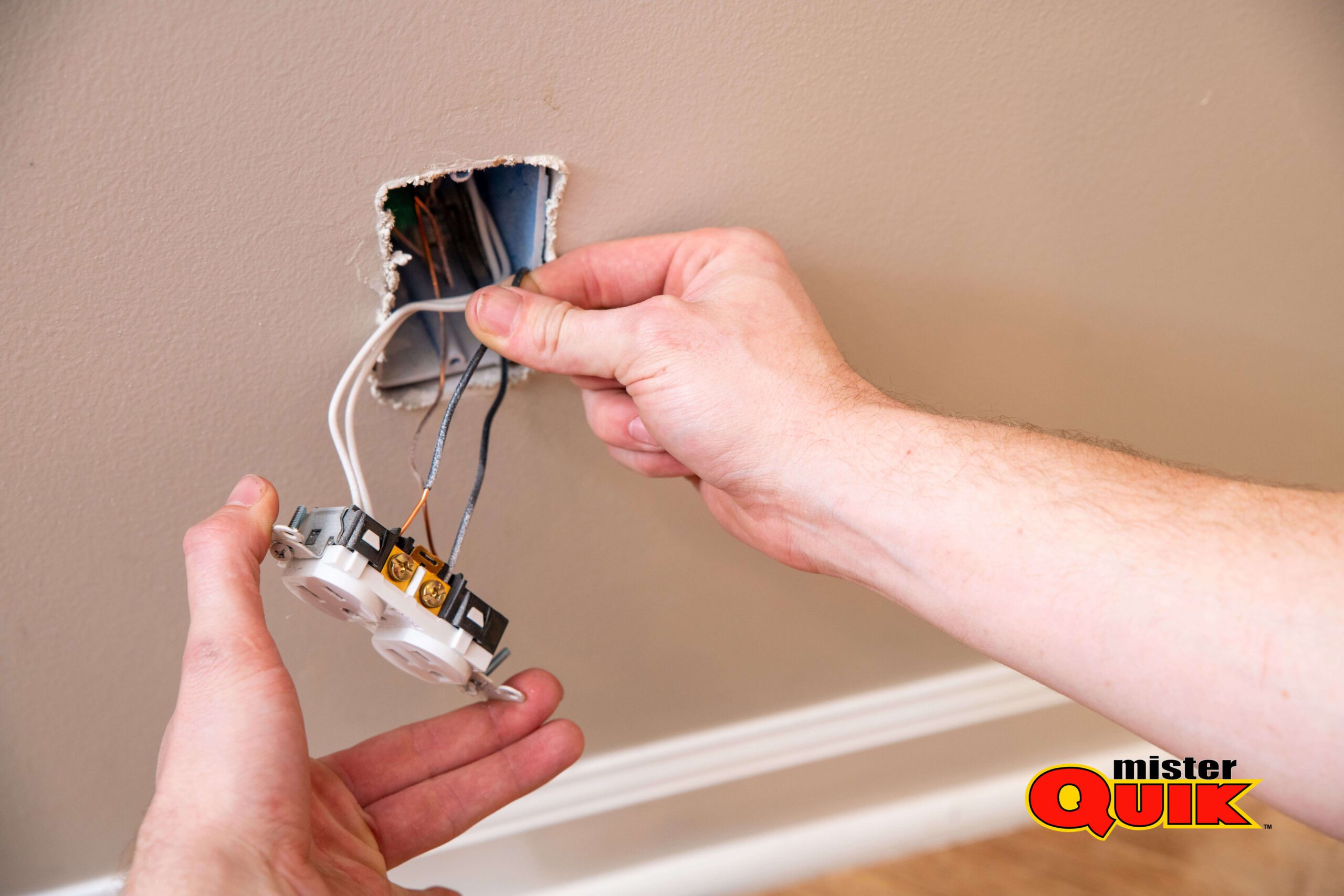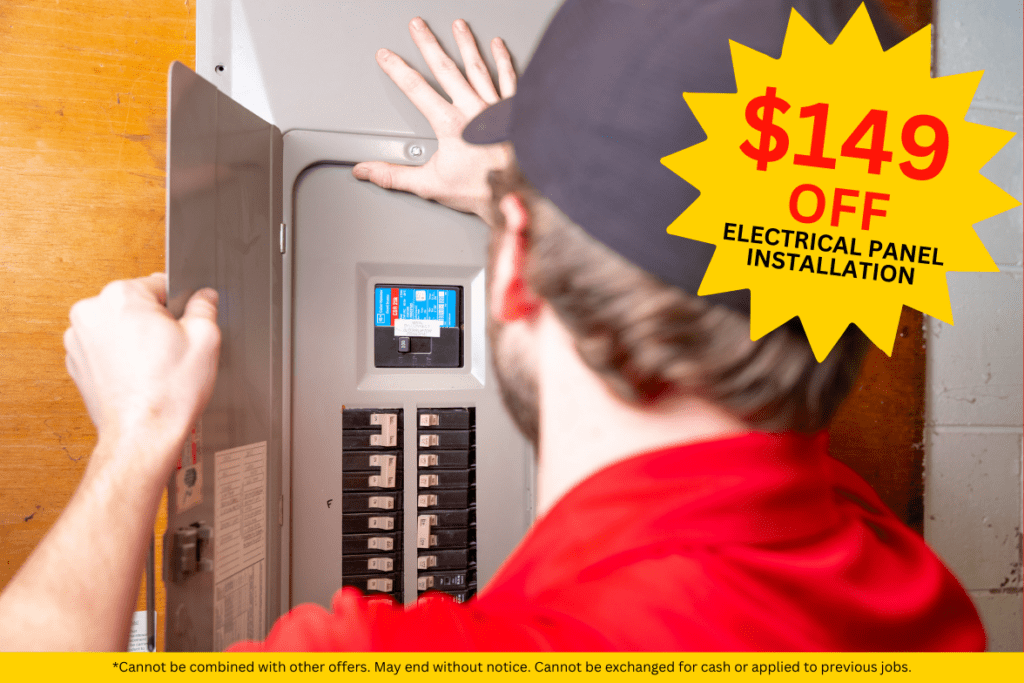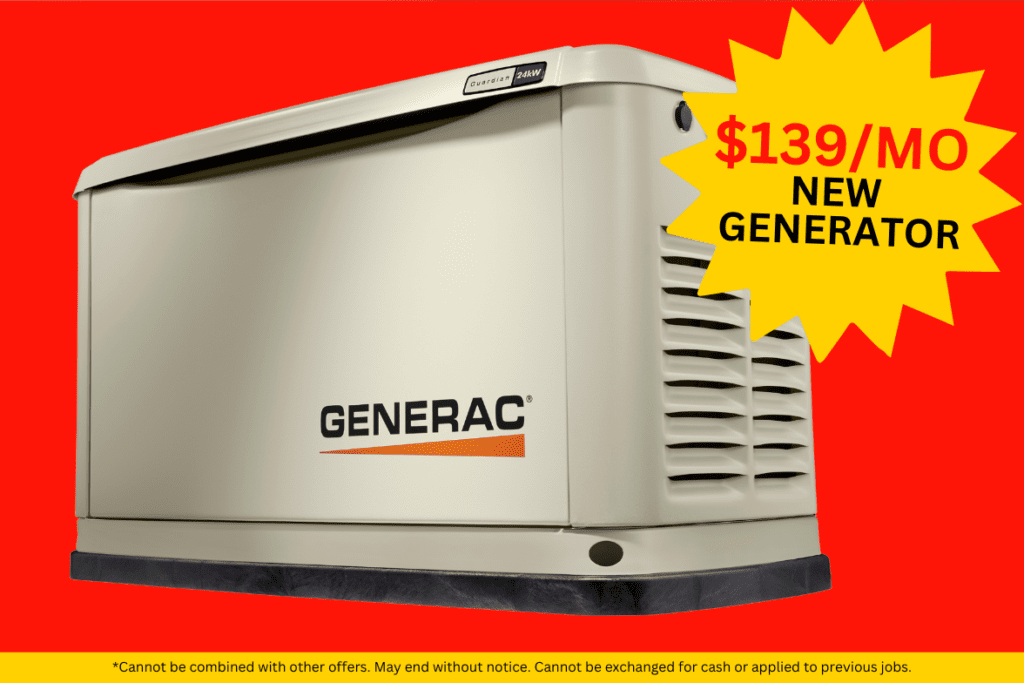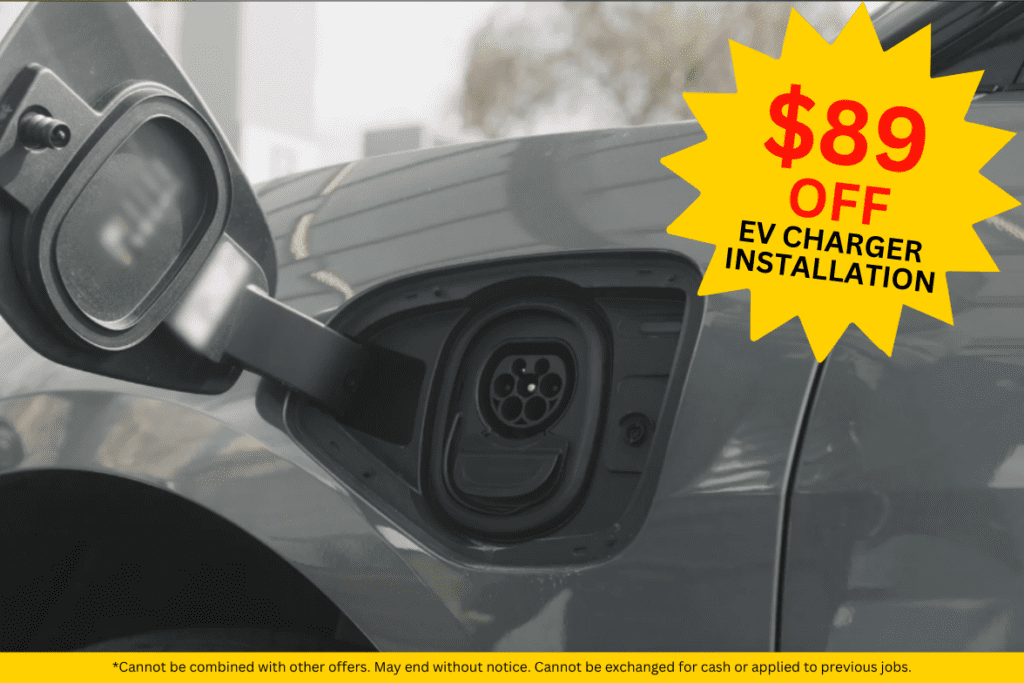Outlet Repair
$54 Off Repair
Service Details
- Safety Evaluation
- Electrical Inspection
- Efficiency Upgrades
- Circuit Testing
- Surge Protection
About Electrical Outlet Repairs
When it comes to your home’s electrical outlets, proper maintenance and repair are key to ensuring safety and convenience. For a limited time, enjoy $54 off outlet repairs with our expert services. Whether you have a faulty outlet, an outlet that’s not working, or one that’s showing signs of wear, our licensed electricians are ready to help. Our technicians will thoroughly inspect your outlets, identify any issues, and repair or replace them as needed. We prioritize safety and efficiency, ensuring your outlets function properly and meet current safety standards. Expect friendly, professional service as we walk you through any necessary repairs and provide upfront pricing. You only pay once the job is complete and you’re satisfied with our work.
Service Details
- Safety Evaluation
- Electrical Inspection
- Efficiency Upgrades
- Circuit Testing
- Surge Protection
FAQ's
It’s a good idea to inspect your outlets every year, and to call for repairs immediately if you notice any signs of damage, such as sparking, buzzing, or a lack of power.
We offer energy-saving advice such as upgrading to smart outlets or ensuring that all outlets are properly grounded and in good working order.
Check if the circuit breaker is tripped or if there’s a loose connection. If the problem persists, contact one of our professional electricians for a thorough inspection and repair.
Yes! We provide emergency outlet and electrical repairs—call us anytime for urgent assistance. Let us help you keep your home safe and efficient with our expert outlet repair services.
Outlet repair services typically range from $80 – $150, but with our special offer, you can enjoy $54 off any outlet repair service. Contact us for a free estimate!
If an outlet sparks, immediately stop using it and contact a licensed electrician to inspect and repair it for safety.
No data found for the provided Place ID.






